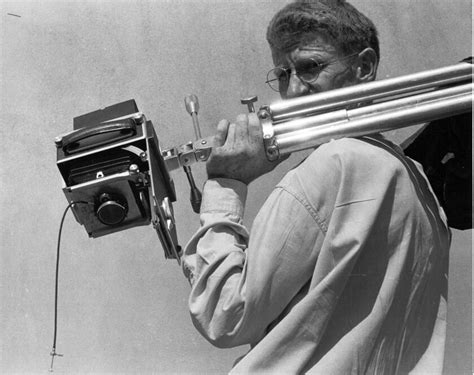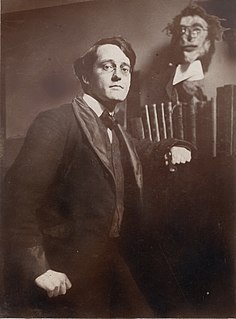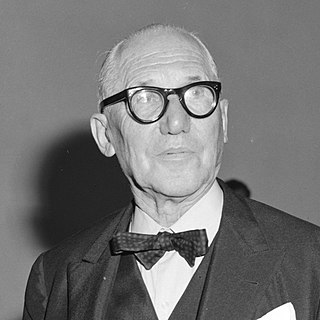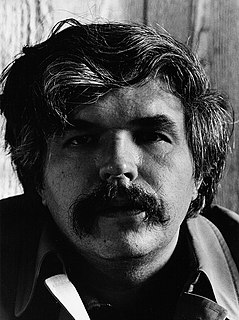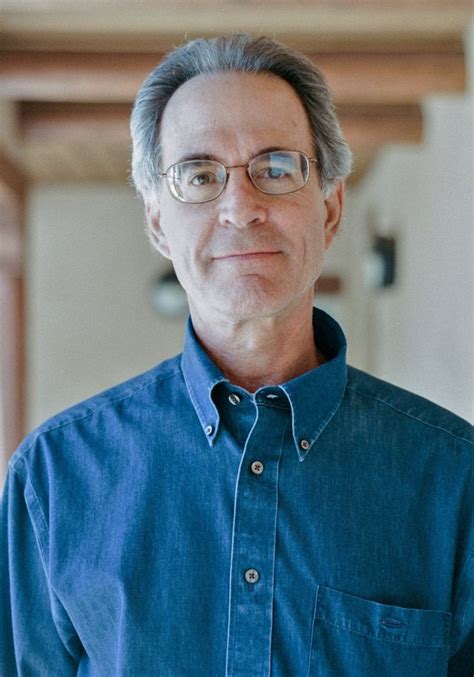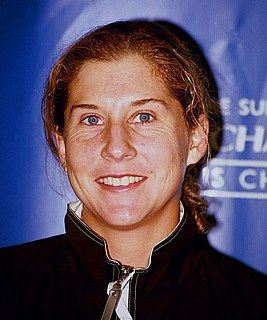A Quote by Franz Kafka
Photography concentrates one's eye on the superficial. For that reason it obscures the hidden life which glimmers through the outlines of things like a play of light and shade. One can't catch that even with the sharpest lens.
Related Quotes
Like wind-- In it, with it, of it. Of it just like a sail, so light and strong that, even when it is bent flat, it gathers all the power of the wind without hampering its course. Like light-- In light, lit through by light, transformed into light. Like the lens which disappears in the light it focuses. Like wind. Like light. Just this--on these expanses, on these heights.
Photography is a life of learning. That's all I want from photography. I don't want the money. I don't need the fame. I don't need the admiration. I'd like all of those things, but I don't need them. Because what I get from photographing is learning. I have spent my life learning by looking through a lens.
Architecture is the masterly, correct and magnificent play of masses brought together in light. Our eyes are made to see forms in light; light and shade reveal these forms; cubes, cones, spheres, cylinders or pyramids are the great primary forms which light reveals to advantage; the image of these is distinct and tangible within us without ambiguity. It is for this reason that these are beautiful forms, the most beautiful forms. Everybody is agreed to that, the child, the savage and the metaphysician.
Sin is to a nature what blindness is to an eye. The blindness of an evil or defect which is a witness to the fact that the eye was created to see the light and, hence, the very lack of sight is the proof that the eye was meant... to be the one particularly capable of seeing the light. Were it not for this capacity, there would be no reason to think of blindness as a misforture.
Imagine an eye unruled by man-made laws of perspective, an eye unprejudiced by compositional logic, an eye which does not respond to the name of everything but which must know each object encountered in life through an adventure of perception. How many colors are there in a field of grass to the crawling baby unaware of ‘Green?’ How many rainbows can light create for the untutored eye?
The pineal gland of evolutionarily older animals, such as lizards and amphibians, is also called the 'third' eye. Just like the two seeing eyes, the third eye possesses a lens, cornea, and retina. It is light-sensitive and helps regulate body temperature and skin coloration-two basic survival functions related to environmental light.
As a magnifying glass concentrates the rays of the sun into a little burning knot of heat that can set fire to a dry leaf or a piece of paper, so the mystery of Christ in the Gospel concentrates the rays of God's light and fire to a point that sets fire to the spirit of man. ... Through the glass of His Incarnation He concentrates the rays of His Divine Truth and Love upon us so that we feel the burn, and all mystical experience is communicated to men through the Man Christ.
I decided that I want to live the rest of my life happy with what I'm doing. So when I play tennis again, I have to play it for the right reason. I don't want to play to get my No. 1 ranking back. I don't want to play for the attention, or to earn more. I don't even want to play because the world wants to see me do it, even though it's nice to know that the world is interested. I only want to play because I love the game, which is the reason I began to play at age seven in the first place.



